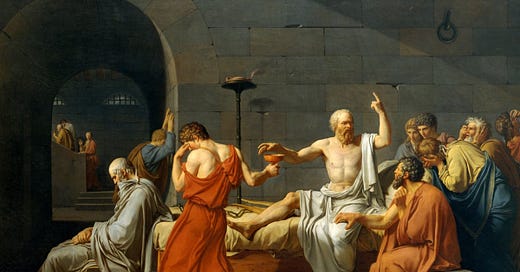Are two philosophers better than one? Or perhaps too many philosophers spoil the discursive broth?
Agnes Callard notes in her conversation with me that in Plato’s dialogues, Socrates never talks to the same person more than once. Each dialogue features a different interlocutor or set of interlocutors. This is curious. Why not write a series in which Socr…
Keep reading with a 7-day free trial
Subscribe to What Is Called Thinking? to keep reading this post and get 7 days of free access to the full post archives.



